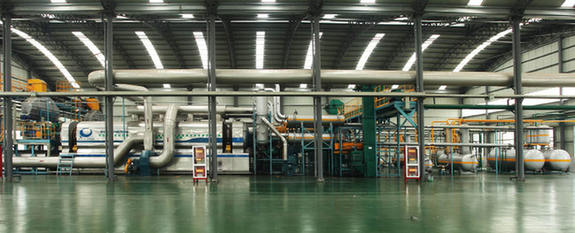'Occupy Central' is far from democracy
The Western media has dressed the "Occupy Central" movement up as democracy. But a careful examination shows that their chants of "democracy" are nothing but the fictional Emperor's New Clothes - the movement is a street riot that goes against rationality, damages the rule of the law and opposes the government. That the Western media interprets the movement as democracy is farfetched and unacceptable; it also reflects the West's hollow and utilitarian understanding of democratic ideals and the decline of its democratic values.
Seen from its goals, organization, practices, and disastrous effect, "Occupy Central" is by no means democracy, but is intended to seize power, antagonize, and cause conflict and damage.
The goals of the "Occupy Central" movement have nothing to do with democracy. Despite its multiple goals, the pivotal part of the movement lies in seizing the right to governance. Hong Kong is entitled to elect its chief executive directly in 2017 according to the Basic Law and the decision made by the National People's Congress Standing Committee. But the "Occupy Central" movement, by staging mass riots in Hong Kong's financial, commerce and administration center, has tried to violate the regulations that the candidate must love China and Hong Kong. They have tried to create the institutional conditions for the election of a candidate who would stand against China and unsettle Hong Kong. In a word, the movement intends to force the central and the Hong Kong Special Autonomous Region (SAR) governments to allow for a candidate who is in every way against China and Hong Kong to run for the 2017 election, under the pretext of "real universal suffrage."
Of course, the organizers are aware that acts challenging the rule of law and the state authority will not work out in the end, but they harbor a covert goal of nurturing forces that are against the central and Hong Kong governments, undermining patriotic forces, and winning more votes for the opposition camp. Though they are not likely to win the chair for the chief executive in 2017, they can still translate their achievements in the movement to the election of the Hong Kong Legislative Council in 2016 and win more seats for the opposition forces. Thus it is clear that "Occupy Central" is not an effort to strive for democratic rights for the 7 million Hong Kong citizens, but for a few people who want to take control of Hong Kong.
The participants of the "Occupy Central" started by causing confrontations and conflicts, turning their back on democracy. Though the organizers characterize the movement as "love and peace," their true intention is becoming clearer as the movement evolves. During the early stages of the movement last year, the organizers hyped the notion of "civil disobedience," though it is an old-fashioned term that is only legitimate in an autocratic, oppressive political system. In the contemporary era, protests in many countries, especially politically stable countries, are seldom packaged as "civil disobedience." Hong Kong, before and after its return to China, has had the rule of law, an open society and free expression. Thus the city does not have the preconditions for "civil disobedience." The organizers introduced the notion in order to inflame confrontation and conflict. Thus it comes as no surprise that the organizers of the "Occupy Central" and the Hong Kong Federation of Students keep disrupting the dialogue with the government and let the protest spin out of control.
The organizers see the young people and students as the main force of the protest and were prepared to turn it into a large-scale conflict at the very beginning. Young people are energetic, passionate, care about reality although they are prone to impulses, and thus can easily become the "dynamite" in a protest. The main force of unrest and protests in many countries are young people and students. In Hong Kong, the economic structure is yet to be transformed, the finance and real estate industries still call all the shots, young people cannot find a decent job and their mobility on the social ladder is often restricted - all these factors have led to their dissatisfaction with the government. The organizers took advantage of this and instigated the students to join in the protest.
Regarding the location, the organizers did not stage the demonstration in Victoria Park which is often labeled as a democracy square, but chose the Central District, the heartland of the city's commerce, finance industry and administration. This also attests to the fact that the organizers are keen on confrontation instead of democracy. The "Occupy Wall Street" movement, which intended to cripple the financial institutions in the United States three years ago, ended in violent clearing. The organizers of the "Occupy Central" are not unaware of the similar consequences, but they insist on persisting, reflecting their determination for confrontation despite the damage it incurs.
The anti-democratic nature of the "Occupy Central" is even more evident judging by its consequences. The movement has brought forth an intense conflict between protesters and police and between protesters and average citizens, inflicting severe damages on the politics, economy, rule of law, society, and people's well-being in Hong Kong.
The stability and prosperity of Hong Kong concerns the national interest and Hong Kong citizens' well-being, as well as Western countries which have interests in the city. The "Occupy Central" movement damages the interests of all stakeholders. If the current and sustained interests are compromised due to some people's greed for power, then Hong Kong does not need the disastrous Western "democracy" sold by "Occupy Central."
The writer worked in Hong Kong media outlets and now lives in Beijing.
The article was translated by Zhang Lulu. Its original version was published in Chinese.
Opinion articles reflect the views of their authors, not necessarily those of China.org.cn.
Source: China.org.cn

